Internal Medicine – Curriculum
Resident Rotations
There are 13 four-week long rotations each year. R1s start one week before seniors, so there is always continuity of patient care on the services.
Days off are always on weekends, even for interns.
R1 Rotations
| How many? | Name of Rotation | # of Days/Wk |
| 4 | General House staff | 6 days/wk |
| 1 | In-pt Cardiology | 5 days/wk |
| 2 | Medical ICU | 6 day/wk |
| 1 | Night Float-Medical ICU | 5 nights/wk |
| 1 | Sub-Specialty Elective | 5 days/wk |
| 1 | Emergency Medicine |
20 shifts/rotation
|
| 1 | Night Float | 5 nights/wk |
| 1 | Ambulatory (continuity clinic) | 5 days/wk |
| ½ – 1 | Out-pt Dermatology | 5 days/wk |
| 1 – 1 ½ | Electives | 5 days/wk |
| On-going | Continuity Clinic | ½ day/week |
R2 Rotations
| How many? | Name of Rotation | # of Days/Wk |
| 1 ½ | General House staff | 6 days/wk |
| 1 | Hospitalist Consult Service | 5 days/wk |
| 1 | Medical ICU | 6 day/wk |
| 1 | Out-pt Cardiology | 5 days/wk |
| 1 | In-pt Neurology | 5 days/wk |
| ½ | In-pt Psychiatry Consult Service | 5 days/wk |
| 1 | Night Float | 5 nights/wk |
| 1 | Ambulatory (continuity clinic) | 5 days/wk |
| ½ | Out-pt clinic with community internist | 5 days/wk |
| 1 | Endocrinology | 5 days/wk |
| 1 | Infectious Disease | 5 days/wk |
| ½ | Geriatrics | 5 days/wk |
| ½ | Systems of Medicine | 5 days/wk |
| 1 ½ | Electives (examples: Radiology, Palliative Care, Ethics, POCUS) |
5 days/wk |
| On-going | Continuity Clinic | 1 day/wk |
R3 Rotations
| How many? | Name of Rotation | # of Days/Wk |
| 2 | General House staff | 6 days/wk |
| 1 | DMC ICU | 6 days/wk |
| 2 | Medical ICU | 6 day/wk |
| 1 | In-pt Cardiology | 5 days/wk |
| 1 | Hospitalist Service |
Shifts modeling hospitalist schedule
|
| 1 | Night Float | 5 nights/wk |
| 1 | Ambulatory (continuity clinic) | 5 days/wk |
| 1 | Nephrology Consult | 5 days/wk |
| 1 | Hematology/Oncology | 5 days/wk |
| 1 | Out-pt Pulmonology | 5 days/wk |
| 1 | Out-pt Rheumatology | 5 days/wk |
| 1 | Electives (examples: out-pt neuro, ENT, Ophtho, GYN, Radiology, PM&R, Palliative Care, CICU, Heart Failure, Ethics, POCUS) |
5 days/wk |
| On going | Continuity Clinic | 1 day/wk |
Resident Call
We utilize four-week block rotations of Night Float. Residents assigned to this rotation work Sunday through Thursday 1730 to 0700. One senior and two interns provide continuity coverage for housestaff patients as well as admit new patients.
Friday and Saturday nights are covered by residents on rotations such as electives or ambulatory. Interns generally have 4 weekends of call scattered throughout the year, R2s generally have 3 weekends, and R3s have 2 weekends. In an effort to maximize the number of weekends off, call has been consolidated on Purple housestaff and ICU so that the intern will work one 24-hour shift per week in addition to their regular day duties.
There are significant advantages to the Night Float system:
- The resident concentrates 20 nights of call (in many programs these are scattered throughout an academic year) into a single block without having daytime responsibilities
- Continuity of patient care improves by having the night float team familiar with housestaff patients for the month and participating in twice daily transitions of care sign-out.
| R1 | R2 | R3 | |
| Night float | 4 weeks | 4 weeks | 1-2 weeks |
|
ICU night float
|
4 weeks | n/a | n/a |
Resident Peer Review Conference
Similar to what you may know as an “M&M”, the RPRC is a resident and faculty led conference that seeks to identify and problem solve systemic gaps in care. The general goal is to cultivate skills for review, communication, and performance improvement.
Board Prep
As part of a comprehensive board review process, starting in their R1 year, senior residents receive access to MKSAP and and are scheduled to complete questions throughout the year.
Journal Club/ Evidence-Based Medicine Curriculum
Under the guidance of a faculty member, residents will perform and present critical appraisal of a journal article. Journal club has 2 objectives: First, to stay current with the latest evidence-based clinical information relevant to general internal medicine. Second, learn the basics of biostatistics, understand the methodology of clinical trials and accurately interpret applicability of research to your practice.
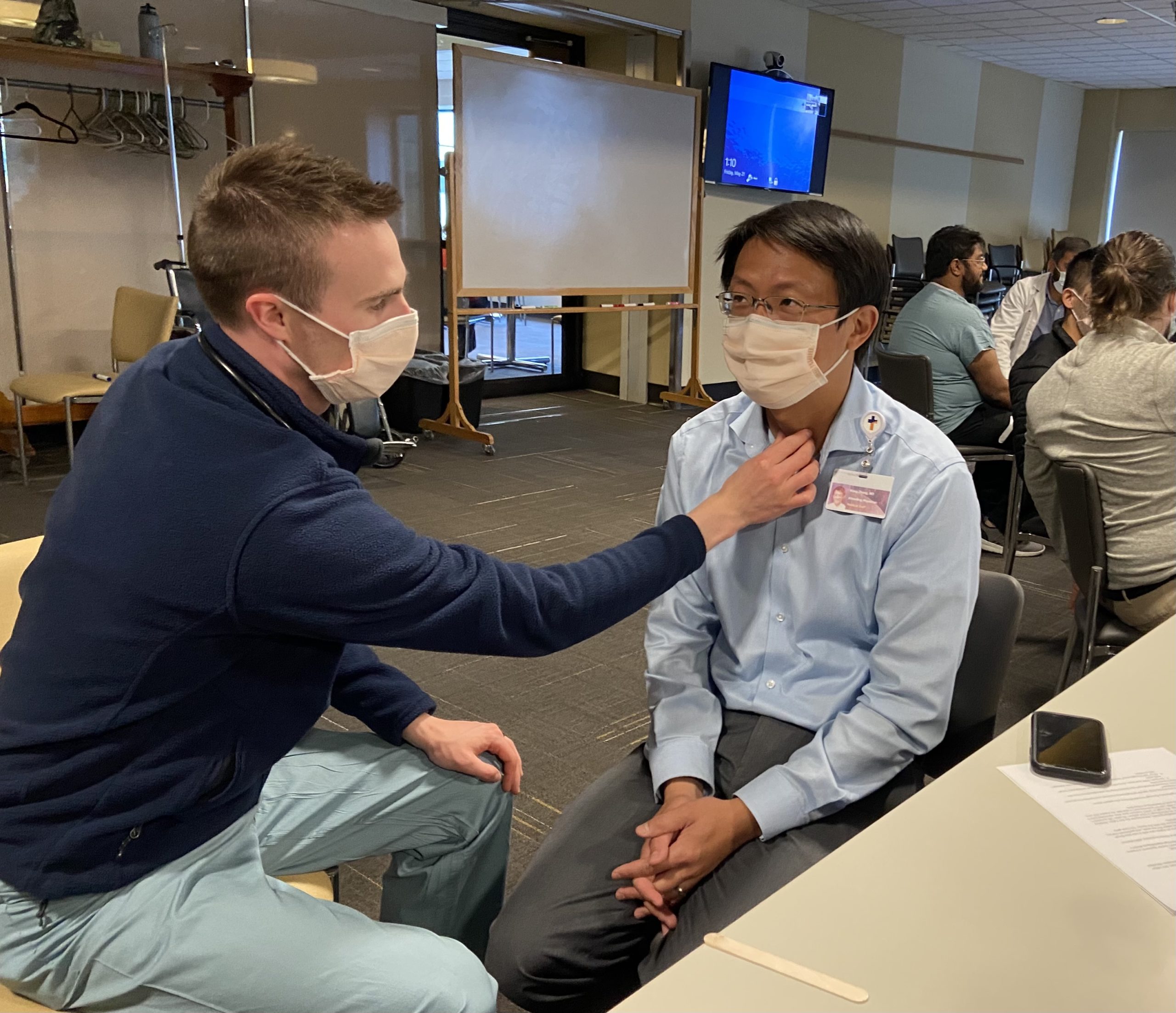
Case Presentations
Case presentations are case-based discussions led by attending physicians and senior residents with a focus on clinical reasoning, generating differential diagnoses and evidence-based-management.
Noon Conferences
Our noon conference teaching is based on a 3-year rolling curriculum that covers a broad range of internal medicine topics. Typically these lectures are given by invited guest speakers, residents, attendings and subspecialists within the medical community. Lectures are broadcast to other clinical sites.
Acute Care Conference Series
Lectures take place during the first 3 months of the academic year. These case-based lectures are designed to help interns recognize/manage common emergent situations in internal medicine.
EXAMPLES:
- Calls in the middle of the night Part 1 of 3 (pain, fever, confusion)
- Informed consent/decisional making capacity/POLST
- Recognition and management of arrhythmias
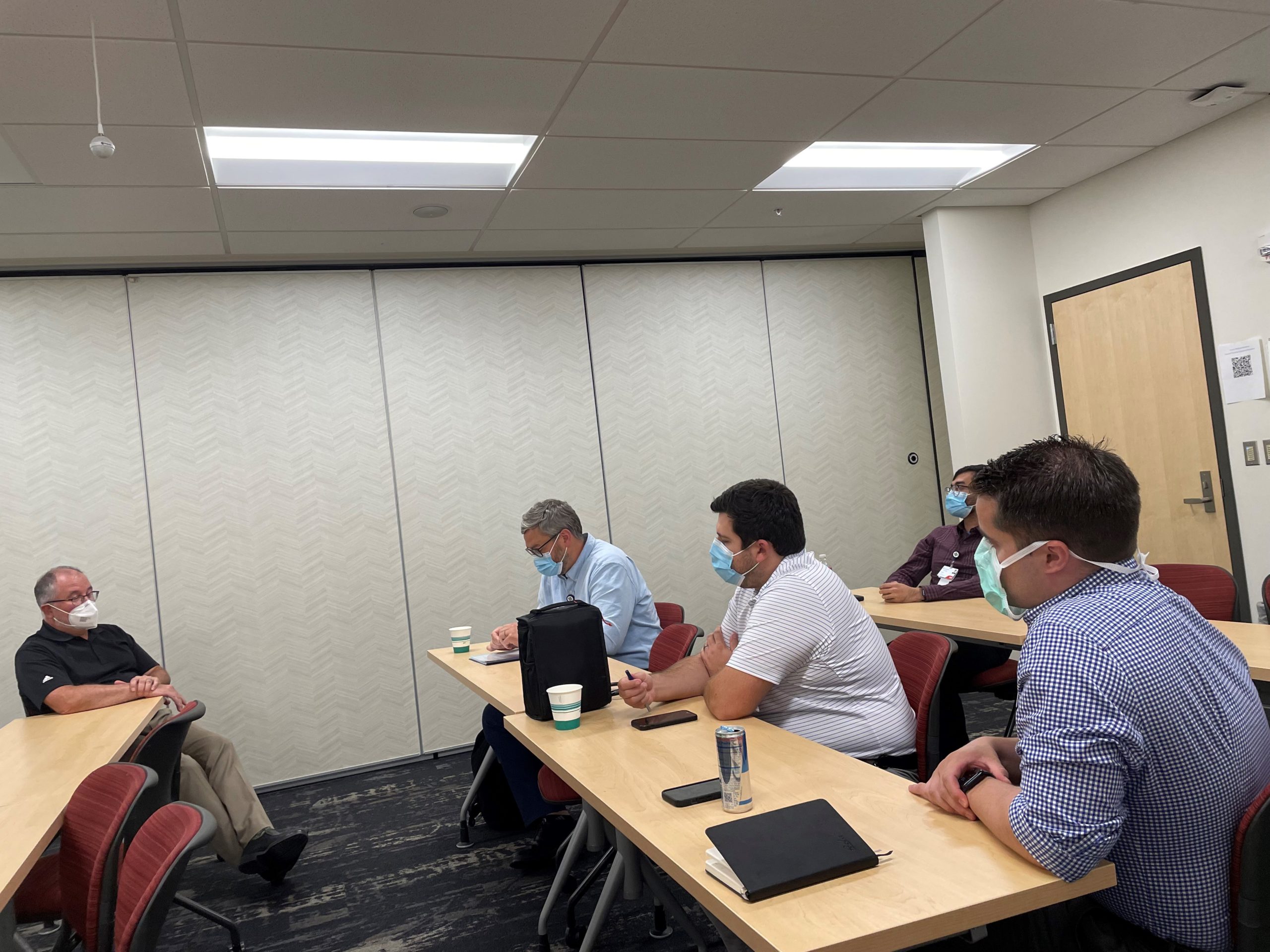
Medicine Grand Rounds/Osler Rounds (monthly)
Other lecture series include Humanities and High Value Care and focused cardiology teaching.
Ultrasound
Ultrasound workshop/Longitudinal Bedside Point-of-care Ultrasound curriculum: The introductory workshop takes place in the R1 year. In addition to the bedside POCUS curriculum, senior residents have opportunities to attend conferences and preset at regional/national POCUS workshops with faculty mentorship from our POCUS director, Dr. Kang Zhang.
Procedures
IMRS residents perform many procedures, usually with ultrasound guidance. Residents do not compete with fellows for the experience.
Residents generally obtain at least 20 central lines (although several residents have numbers in the hundreds). Other common procedures include arterial lines, paracentesis, thoracentesis and dialysis catheter placement.
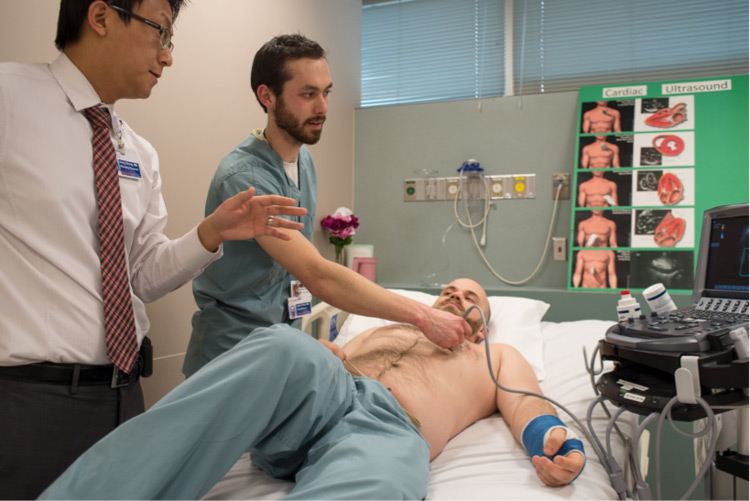
“In my first year, I had over 90 procedures including central lines, arterial lines, chest tubes, paracenteses, thoracenteses and lumbar puctures.”
Advocacy
Residents are encouraged to advocate politically for their profession and for their patients. A resident is a member of the Spokane County Medical Society board and opportunities exist for board participation in the Washington State Medical Association. In addition, IMRS residents annually participate in the ACP Leadership Day in Washington, D.C.
HIV Clinic
Spokane Internal Medicine Residency prepares residents for future practice in managing HIV and related diseases by having residents participate in a developed, integrated HIV curriculum where people living with HIV are followed by residents as their primary care provider in the resident continuity clinic. During each ambulatory block, residents will get 1:1 teaching with faculty who are HIV specialists on how to manage HIV patients in the outpatient setting while seeing patients in our HIV walk-in clinic. Residents will have access to the UW National HIV Curriculum and the opportunity to discuss cases with UW HIV ECHO one afternoon per week. No matter the setting of their future practice, we train graduating residents to provide high-quality medical care to persons currently living with HIV.
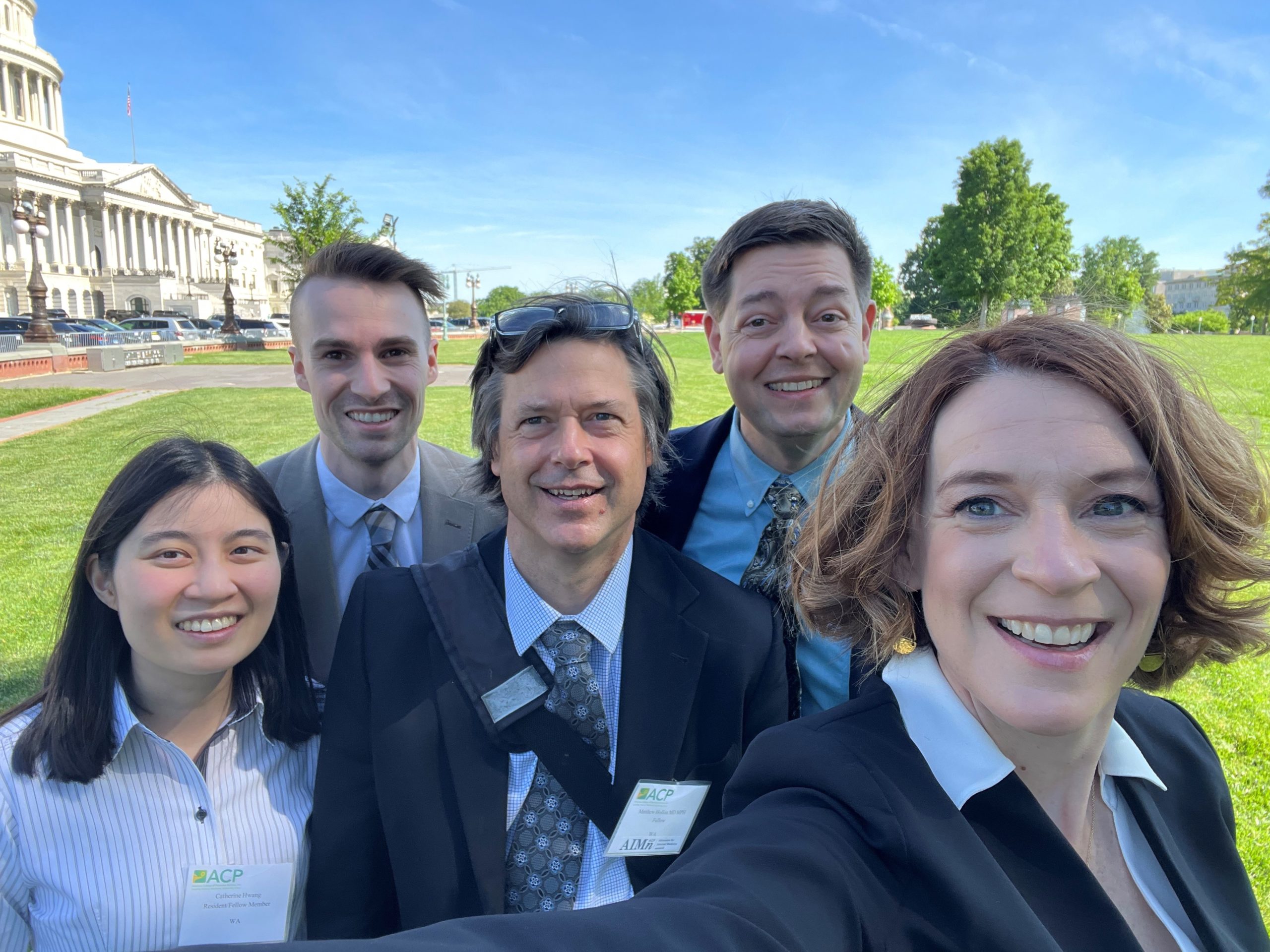
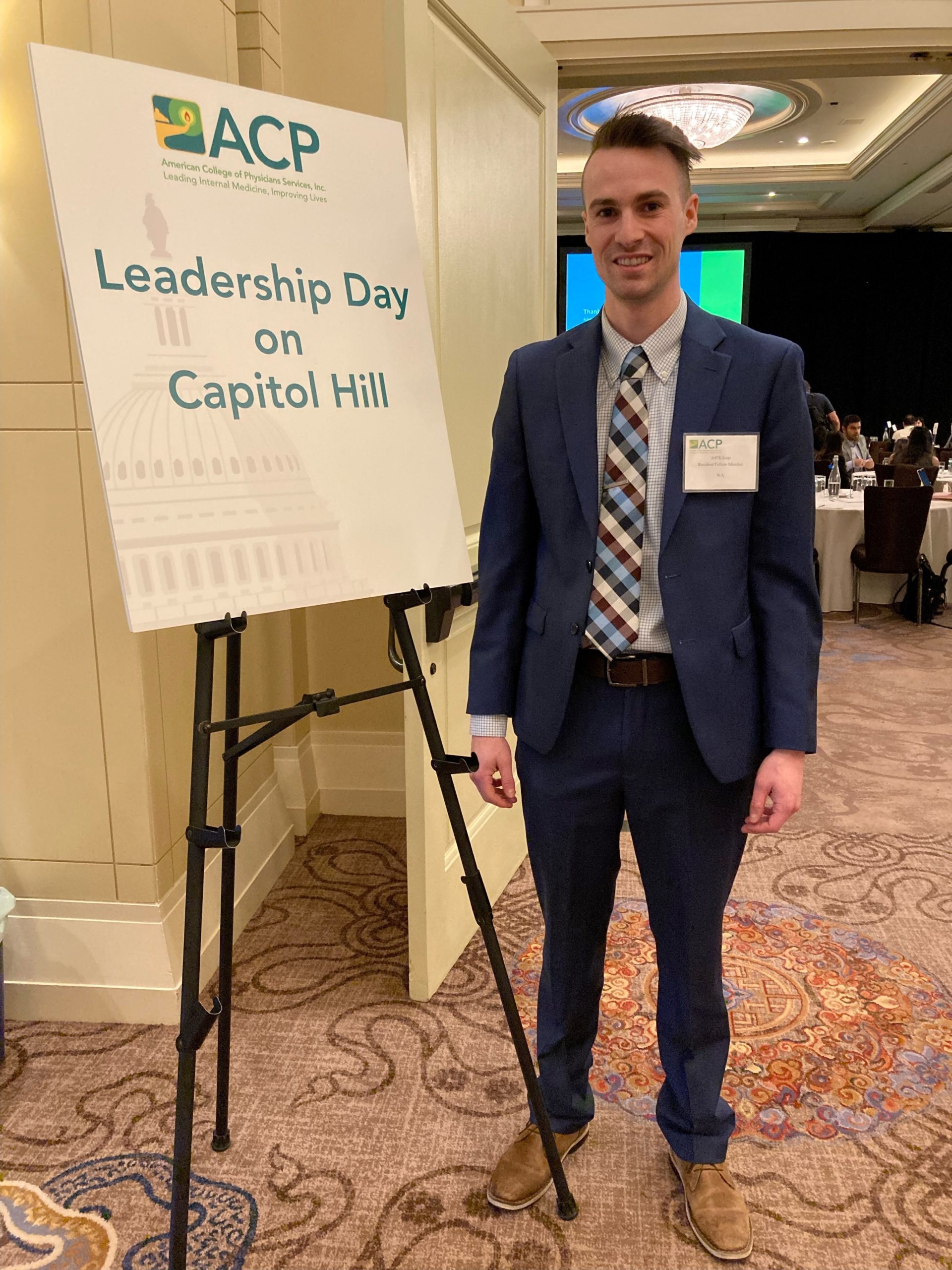
Scholarly Activity
Scholarly activity is obtained in a variety of ways – from QI in the clinic to original research and everything in between. Residents are encouraged to submit their work for publication and/or presentation at local, regional and national meetings.
Collaborative QI
Residents from FMRS, IMRS, TY and Psychiatry are divided into inter-residency groups. They identify a patient safety issue from any patient care setting and perform a root cause analysis which they then present to the hospital’s QI leadership. Senior residents continue in these groups to complete a PDSA cycle the following year.
Additional Scholarship is showcased in local, regional and national events.
Local
Northwest Medical Research Symposium
This Symposium highlights the work of all of the Spokane residents. Abstracts are submitted and 9-12 selected for oral presentation. Posters are also prepared for this meeting. Both the oral and poster winners in this judged competition are awarded cash prizes.
SCMS
The Spokane County Medical Society hosts an annual CME event where at least one IMRS resident presents an abstract.
REGIONAL
ACP
The Washington chapter of ACP (American College of Physicians) sponsors a competition for residents of the four Internal Medicine training programs in the state. Each IMRS senior resident prepares an abstract about an interesting case or a research project. The abstracts are judged and several are chosen for oral presentation at the Regional ACP meeting. The presentation winner gets an all-expense paid trip trip to National ACP for presentation. In addition, residents can submit posters of their work.
The state chapter also hosts a Spring Scientific meeting for presentation of QI/research/works-in-progress.
SGIM
Society of General Internal Medicine has both a regional and national meeting for residents where oral and poster presentations are given. Generally, Spokane has several residents who participate.
NATIONAL
Each year our residents present abstracts at national meetings. (e.g, CHEST, SGIM, ACP, ATS, etc.)
RESEARCH
Residents at all levels have the opportunity to collaborate with faculty on projects. Several projects are completely clinical – examples include revision of DKA protocols in the ICU, Sepsis project utilizing ProCalcitonin and Hypothermia research. Other projects proceed along a more traditional research pathway.
